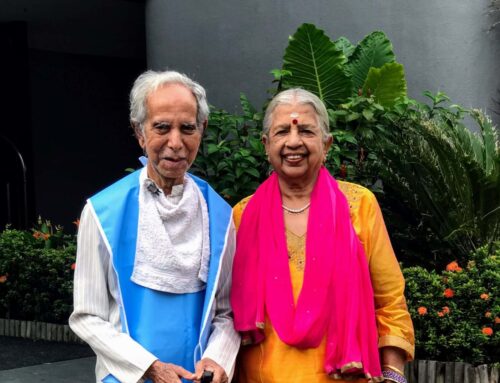An attempt at being funny. I had the hardest thing trying to come up with a quote. I know that someone made a quote, which went something like….”dah dah dah…about” Was it grateful about? Happy about? Complain about? Trying searching for that. I googled Bernard Shaw, always reliably curmudgeon. Unsuccessful. Anyway, here it is.
Opinion
CommentConnect: facebook twitter Google Plus Radio: Classic FM Feed: rss
I must try harder to be grateful for what I do not have
Shoba Narayan
May 6, 2014 Updated: May 6, 2014 17:57:00
You know what the problem with you is?” said my therapist in his all-knowing voice. “You are not grateful enough.”
Now, I’ve always thought of myself as a grateful sort of girl. The thing is that I don’t have very much to be grateful about.
Consider the main influences in my life: my family. I didn’t choose my parents or the location of my birth. I didn’t choose to be born in a hot, steamy city called Chennai where everyone knew each other’s business and if they didn’t, it was because the person was either dead, injured or worst of all, boring. I didn’t choose to be born with a sibling whose only answer when I discussed job issues, partner problems or even how my intestines seem to be expanding with every passing day was the single line reply: “Shoba, please. Meditate, I beg you.”
Now, my shrink was joining the party by suggesting that I wasn’t grateful enough.
It seemed like a vast conspiracy theory invented by those who are supposedly near and dear to me. It seemed like dodgy ideology, if you asked me – and nobody was. That was the galling part. Here I was, simmering with unspoken anxieties and frustrations and the best that my paid and unpaid loved ones could come up with was that I meditate and be grateful?
When I studied psychology in college, the focus of the field was on mental disease: schizophrenia and depression, mania and paranoia. These were massive, real psychological problems that required hours of therapy and going deep into the psyche. It required the study of Freud, dreams, infantile fantasies and compulsive dysfunctional behaviours. It was a proper science with no proper answers.
How the world has changed. Today, a burgeoning field called positive psychology has become the focus of the field, both among experts and laypeople.
Scholars are studying grit and character and how these will improve grades in school. They are writing books with punchy titles such as Will Power and Flourish. All of them focus on going from good to great. The demons of psychology past, which were held under the umbrella, “abnormal psychology”, are not for practitioners of this field. No, they want to analyse and discover ways of being happier.
They want to figure out how the mind connects to the body and how the two connect to the soul, if possible. They talk about prayer as a way to improve the self, something that was considered heretical by my psychology professors of yore. It is in this context that my therapist brought up gratitude: feeling thankful; counting your blessings. As it turned out, all those pithy proverbs that your grandmother said were true. Gratitude is a powerful tool for well-being, according to recent research on positive psychology.
My homework was simple. Every day, at the end of the day, before retiring to bed, I was to list three things that I was grateful for; three things that happened that day if possible. Then, I was to figure out why I was grateful for them.
“I am glad I didn’t eat potato chips today,” I began. As for why I was grateful, I said, “Because they weren’t in the pantry.”
This made me feel a little silly. I felt obliged to be grateful about more substantive things.
“I am grateful that I don’t have a life-threatening disease,” I said. As for why, I said: “At least I think I don’t have a dreaded disease. Who knows what my body is harbouring.”
My therapist shook his head. “Don’t mix up your latent pessimism with this exercise,” he said. “This is all about feeling good.”
But I didn’t feel good. I was – much like Jerome K Jerome who believed that he had every disease except housemaid’s knee – worried about what I had.
“Let’s try again tomorrow,” said my therapist. “And this time, try really hard to be grateful.”
I walked out of his office. Boy, was I grateful that my session was over.
Shoba Narayan is the author of Return to India: a memoir



Lovely Shoba
Thank you Raji